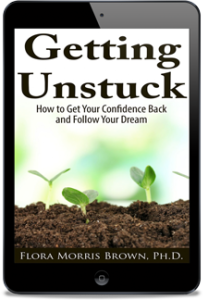 Each time school resumes some look forward to returning to the classroom with anticipation, others with dread. Both groups will spend many days sitting in a classroom.
Each time school resumes some look forward to returning to the classroom with anticipation, others with dread. Both groups will spend many days sitting in a classroom.
Joe Holmes, a student at George Mason University, says sitting in classrooms all day brings on learned helplessness. Instead of being out doing, trying out and living, we tell the young to “prepare” for these things.
I heartily agree with Joe when he says
When you’re constantly being told to prepare for life, you slowly begin to think you aren’t ready to live it. You need to wait to be taught formally how to do something before you give it a try. But this is at odds with the reality of life. As I heard (ironically enough) in a quote from my school’s agenda: When it comes to experience, we always get the test before the lesson.
It’s like believing you need to read the manual to your new computer or digital camera thoroughly before you can start using them. Just the opposite is true. You can only learn to use technology by trying them out, making mistakes and finding the solutions. No manual covers every contingency.
My youngest daughter has a theory that a piece of technology should be easy enough to understand without a manual. I think this is the basis of the term “user-friendly.”
But I don’t think this translates into the classroom being a waste of time. (You knew I wasn’t going to leave it there, didn’t you.)
While formal education has room for much improvement in its implementation, and cannot fully prepare us for the “real” world, it has some advantages. Here are four of them.
1. You have time to focus on very specific pieces of learning allowing time to explore in detail. In the classroom you can not only learn the parts and pieces of a subject, but discuss their history and relevance.
Being in the classroom is like learning the parts and operation of a car without concern for all the traffic. Being in the real world, by contrast, is like driving the car where everything has to work together while you have to also focus on your own driving and that of others.
2. You get an opportunity to try out ideas and engage the attention of a subject specialist (if you’re fortunate,) as well as vigorously engage in debate without risking a bloody nose.
3. You digest information in small pieces allowing time for absorption before taking on the next bite.
There are some things are best learned slowly, in order and in small steps. Math is one of them. For most of us, it’s very useful to learn to add and subtract before we tackle multiplication and division. Even though we moan and groan about those drills and multiplication tables, what we learn in basic math lays the foundation that serves us in many transactions for the rest of our lives.
Perhaps we could learn to math using rocks by a stream or shells on the beach, but steady consistent practice is invaluable and a distraction-free environment is helpful.
4. You get the attention of a teacher (again if you’re fortunate) who cares not just about a subject she loves, but also is dedicated to helping you build your strengths, take risks to grow and find your voice.
During four decades of teaching, one thing that amazed me was how touched my students were by the mere fact that I learned their names and remembered them even outside of the classroom. (This was especially true for my college students ) It made me believe that many of them didn’t get enough positive attention, acknowledgement and validation outside that classroom.
There are many things we must learn outside the classroom and without the benefit of a manual or formal training. And, the time inside the classroom shouldn’t be a time when we suspend living life. Our youth should definitely not be squandered in a never-ending state of preparation. As a matter of fact, the best use of lessons from the classroom is to apply them to life constantly.
We certainly can’t wait until we think we’ve learned everything on a subject before we start to apply it to our lives. As a matter of fact, you must use the classroom to explore and pursue your dreams as you amass the content common to our culture. Many of the inventions, advances and findings we enjoy were sparked by ideas in the classroom that needed development, tweaking and sometimes completely reworking.
We leave the starting gate at birth, and the formal classroom is not a detour, but one of the many learning experiences along the way. Enjoy the trip.

 In an Oct. 2009 issue of Health Magazine, Rashida Jones, daughter of Quincy Jones and Peggy Lipton, shared that her favorite cheap stress buster was “a long drive with the windows down, like a happy dog. ”
In an Oct. 2009 issue of Health Magazine, Rashida Jones, daughter of Quincy Jones and Peggy Lipton, shared that her favorite cheap stress buster was “a long drive with the windows down, like a happy dog. ”
 Celebrating Dr. Martin Luther King Jr. Day takes many forms for many people. I’d like to focus on his call to all of us to serve. In his speech, “The Drum Major Instinct,” he said that if you want to be great, serve. Regardless of background, education and ethnicity we can all serve others and in so doing help ourselves and all of humankind
Celebrating Dr. Martin Luther King Jr. Day takes many forms for many people. I’d like to focus on his call to all of us to serve. In his speech, “The Drum Major Instinct,” he said that if you want to be great, serve. Regardless of background, education and ethnicity we can all serve others and in so doing help ourselves and all of humankind

Recent Comments